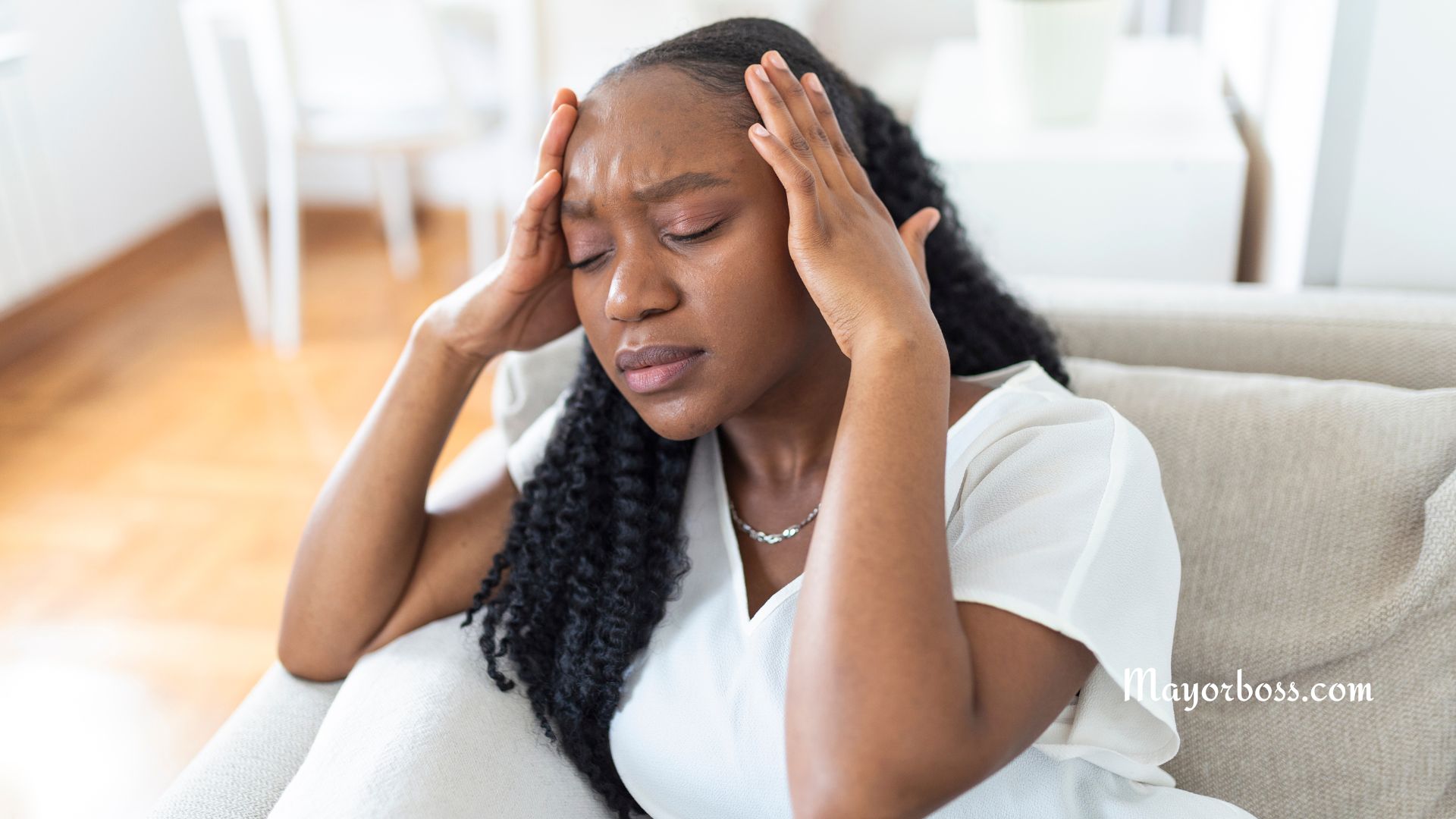Reasons Your Head Is Pounding
If your head feels like it’s pounding, there could be a variety of reasons behind it. From dehydration and high-stress levels to migraines and certain medications, various factors can contribute to that throbbing sensation in your skull.
Why Is My Head Pounding?

Dehydration
When you don’t drink enough water, your body can’t function at its best. This lack of hydration affects your brain, too. A decrease in blood volume means your brain isn’t getting enough oxygen, causing you to experience a pounding headache.
So, how can you deal with it? Try drinking a glass of water and see if it helps. If you’re outdoors, find a shady spot to rest. Additionally, make a habit of carrying a water bottle to ensure you’re drinking enough throughout the day.
Stress
When you’re stressed, your body releases chemicals like adrenaline. These substances prepare your body for a “fight or flight” response, but they can also tighten your muscles and contribute to headaches.
Ways to reduce stress. Meditation, exercise, and deep-breathing exercises can be effective. Moreover, consider speaking to a healthcare provider for a more comprehensive stress management plan.
Migraines
Unlike regular headaches, migraines are a neurological condition. They cause intense, throbbing pain, usually on one side of the head. Light and sound sensitivity, as well as nausea, are common symptoms.
If you suspect you’re dealing with migraines, consult a healthcare provider for a diagnosis and treatment plan. Over-the-counter medication and prescription drugs can help manage the symptoms.
Medication Overuse
Frequently using headache medications can ironically cause more headaches. This is known as a “rebound headache,” which occurs when medication wears off and your body craves more.
Talk to your doctor about your medication usage. They may suggest changing your medication or adopting other treatment methods.
Caffeine Withdrawal
Caffeine narrows blood vessels, helping to relieve headaches. However, when you suddenly stop consuming it, blood vessels widen, causing a rush of blood to the head and resulting in a headache.
To minimize the impact, gradually reduce your caffeine intake rather than quitting all at once. This gives your body time to adjust.
Lack of Sleep
Lack of sleep disrupts various bodily functions, including hormone regulation and muscle relaxation. As a result, you may wake up with a pounding headache.
Aim for 7-9 hours of sleep per night. Also, maintain a consistent sleep schedule, even on weekends, to help prevent headaches.
High Blood Pressure
Elevated blood pressure can put extra strain on your blood vessels, especially those in your brain. This can sometimes manifest as a headache.
If you think high blood pressure could be the issue, consult a healthcare provider. Monitoring your blood pressure and taking prescribed medications can help manage this condition.
Food Triggers
Certain foods like aged cheese, processed meats, and alcoholic beverages contain substances that can trigger headaches. Keep a food diary to identify triggers. Once you know what they are, you can avoid them to help prevent headaches.
Sinus Issues
Inflammation in the sinuses can create pressure and cause headaches. These are usually accompanied by a stuffy nose or sore throat. Over-the-counter decongestants can provide temporary relief. However, for chronic issues, consult a doctor for a more targeted treatment plan.






